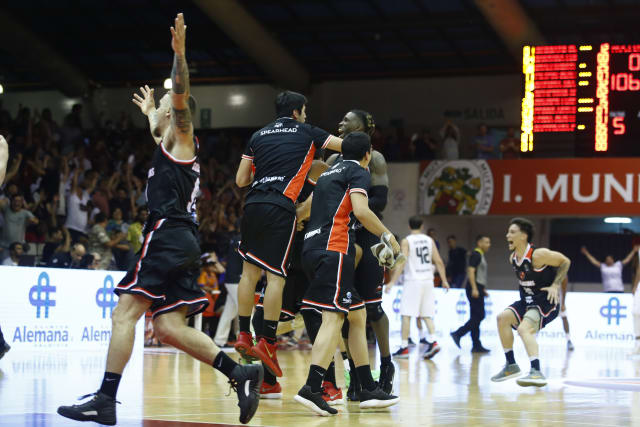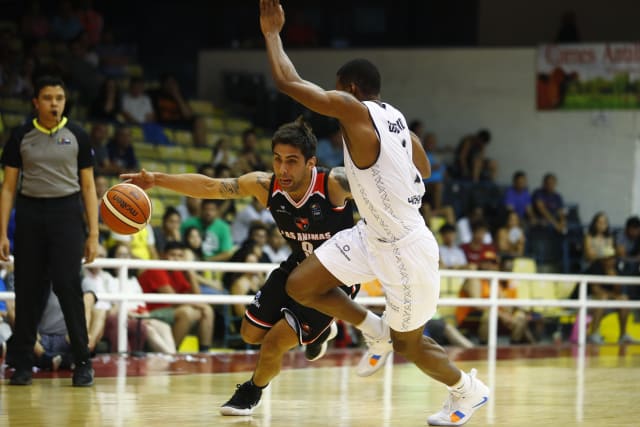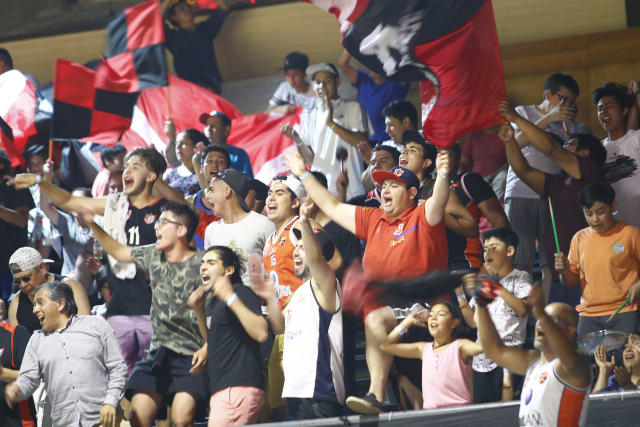When humility triumphs
The conquests of the most vulnerable, of those that come from humble environments, of minorities, usually go unnoticed - they’re not given any importance. But sometimes these achievements are so impactful,
The conquests of the most vulnerable, of those that come from humble environments, of minorities, usually go unnoticed - they’re not given any importance. But sometimes these achievements are so impactful, so visible, that it's impossible to ignore them. One of these cases is the qualification of Chilean team Las Ánimas for the Liga de las Américas 2019 Semi-Finals, something that no other team in their country has achieved. Against all odds, against the logic of a logic sport like basketball, the Valdivia team broke the losing tradition of Chilean teams, surprised everyone and got in with the eight best teams of the continental tournament.

And what usually happens is that when the unexpected happens and it's not announced, there are questions to try to understand what is, until today, not very known.
What is Las Ánimas? A neighborhood club, with a small structure, from the outskirts of Valdivia, who were almost irrelevant until less than two years ago. Although it was established in 1942, its main athletic activities had been rowing, boxing, table tennis, soccer (at an amateur level, reaching their highest level, the Third Division, in the 90’s) — and tejo (a traditional South American sport).
Why was basketball incorporated to their sports disciplines? Because it's the main sport in the city of Valdivia, which gives Valdivia natives the right to be proud of feeling like the “capital of Chilean basketball.” In a city where the local soccer team, Deportes Valdivia, is almost a historic member of the Second Division, which doesn't create too much of a following, basketball shares with rowing, 50 years ago, the people's preferential spot. The people of Valdivia are passionate about basketball, and that’s why it’s allowed that Valdivia and the capital, Santiago de Chile, be the only ones with two teams in the National League.
But at the beginning of 1970, Club Las Ánimas decided to start with basketball at a local level. However, economic limitations never allowed them to participate at DIMAYOR, the first professional Chilean tournament, which lasted from 1979 to 2012.
Las Ánimas built their brief history in the shadows of Deportivo Valdivia, the most powerful team in the city, who portrayed a superior level, a greater financial capability and a larger fanbase. The city's big team participated in DIMAYOR from 1987 to 2010, achieving the national title in 2001, allowing them to jump to the international stage in the Liga Sudamericana.
When did Las Ánimas decide to get involved in professional basketball? When several DIMAYOR teams left the league and created their own, Las Ánimas supported them, was part of the creation of the national league and in the 2011-2012 season they did their first appearance in Chile's basketball. Of course, for many years, the team from the Las Ánimas sector at the north of Valdivia had to pay for their inexperience and had very poor results. In their first experience they were second-to-last in the southern zone, and in the 2012-13 season it was even worse - they were last in their group. Things didn't get better in 2013-14 -they finished fifth among the eight teams in their qualifying zone.
In what moment did this start to change? In 2014, the club's president, José Méndez, decided to go for a change, which was, above all, in the directive. He added Rudy Stage, a LATAM commercial pilot, to the club's management. “I was just another basketball fan that collaborated in whatever I could. And then they asked me to move on to more executive tasks and to partake in the decision making in the professional team. I agreed but conditioned it to the improvement of the internal structure, to turn it more efficient. The challenge wasn't and isn’t easy, because we're the city's small team, the one that's been around for a shorter time and has fewer followers, but we set out to grow in the sports aspect and as an organization as well,” says Stage.
Despite Las Ánimas were improving their inside level, this wasn't reflecting on the results: 9th among 12 in the 2014-15 season, and what in the 2016 regular phase was exciting, with the 3rd position in the league, ended in frustration after losing in the Quarter Finals, 3-0, against Leones de Quilpué. To complete a season to forget, their neighbors, Deportivo Valdivia, were the national league's champions.
How did they decide to take a quality leap? Stage himself remembers that “if we wanted to transcend, we had to be more ambitious and, without making any crazy decisions, we had to take risks to build a more powerful roster. That's why we decided to make the effort to sign Franco Morales. But we had to surround the team with a more professional structure. Then we signed Carlos Moraga as sports director, and that was a great asset.”
 Franco Morales
Franco Morales
Moraga, who had done the job at Osorno, assures that “we wanted to improve the working conditions for the players and the technical team, who we supported with a multidisciplinary team. Chilean basketball has new structures, but we try to perfect them within our economic capabilities.”
What was the great impact of Las Ánimas in Chilean basketball? During the 2017-18 season the national players base was maintained, they added an outstanding asset like Morales, and they sought out to sign three good foreigners, which were small forwards Brandon Robinson (the LNB’s greatest scorer) and Arnold Louis, and Venezuelan center Luis Julio. The results were excellent: they won the southern conference and won their first title in their history after defeating Leones de Quilpué 4-1 in the final series. Then they captured the Chile Cup and are currently first in their league's conference and are searching for something that no other team has achieved up until now: two consecutive titles.

How have Las Ánimas benefited from their good performances? Stage shares that “we have a strong support from the state, both at a regional and municipal level. Today they consider us at the same level as Deportivo Valdivia, which confirms our growth. Besides, the team had a lot of chemistry with the people, we multiplied the attendance at the stadium and the number of club members has increased. Azurmendy Coliseum has a capability for 5,000 people and we had an excellent stage during the most recent playoffs. Our presence in the media increased and private companies start to see the value of being with us. All this has allowed for our accounts to be balanced, which is a great first step.”

For the sports director, the objective is to give greater importance to what surrounds the team. That's why Moraga points out that they have “improved the way we travel to competitions, we improved the quality of the hotels where we stay, as well as the roster’s diets. Coach Lucas Zurita’s arrival was important because it helped us to understand everything from a more professional standpoint. We're working with people in charge of communication and marketing and we're already starting on merchandising.”
Besides, the club had dedicated part of their revenues to remodel their stadium, with a thousand-person capacity, which they mostly use for minor categories and the women’s team — which was recently created.
What's the importance of Liga de las Américas for Las Ánimas? Carlos Moraga has no questions about it and states: “Just being in the tournament is the most important thing that has happened to the club in their whole history. This is the first international experience and we're learning. If we also add the triumphs against teams from Argentina and Brazil, there are no words to describe what it means. This enables us to impact our people and, also, to be known outside Chile. Many people value our efforts and have already committed to help us. But qualifying to the Semi-Finals was a dream come true, something unimaginable that's bigger than us, but it does force us to make a greater effort to be at the level of our next challenge.”
FIBA